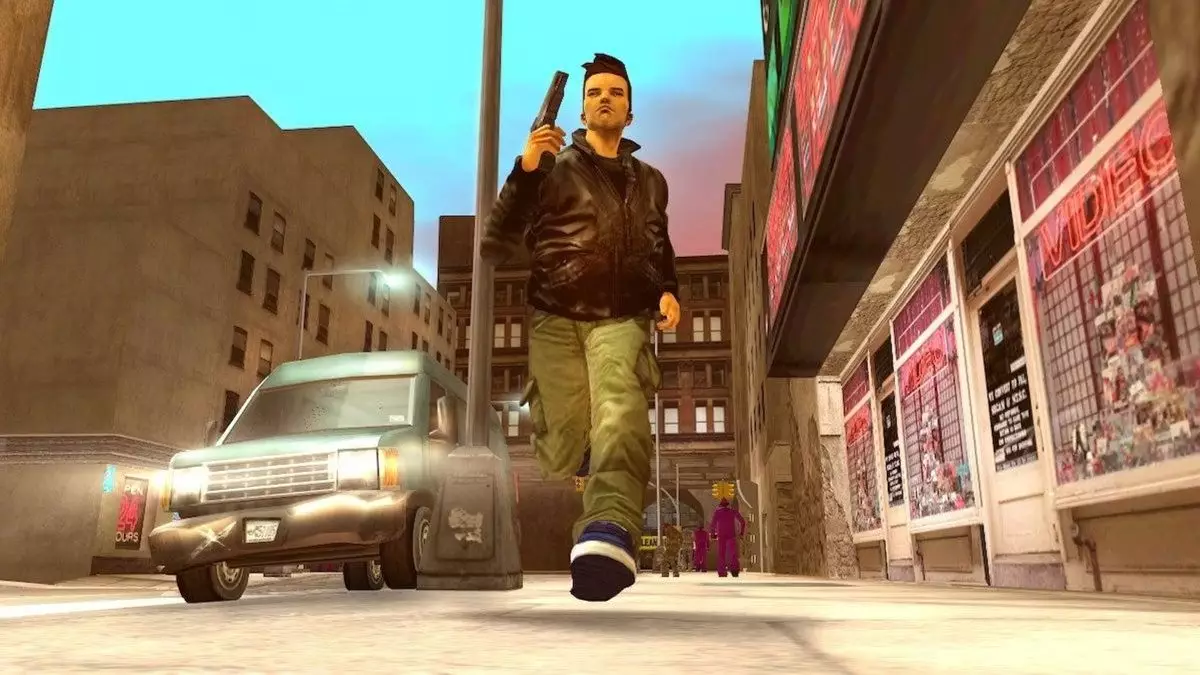In the early 2000s, the gaming landscape was rapidly evolving, with gaming consoles rapidly emerging as essential home entertainment systems. Among the pivotal moments in this period was Sony’s acquisition of exclusive rights to three key titles in the Grand Theft Auto (GTA) series: GTA 3, Vice City, and San Andreas. These games would not only transform the gaming industry but also cement the PlayStation 2’s dominance in the marketplace.
The former president of Sony Computer Entertainment Europe, Chris Deering, recently opened up about the strategic decisions that allowed Sony to secure this remarkable exclusivity. According to Deering, the motivation behind these deals was largely motivated by fear—fear of Microsoft’s imminent entry into the console market through the Xbox. This fear led Sony to adopt a proactive approach, recognizing the necessity of exclusivity to maintain its competitive edge.
Deering’s insights suggest that the decisions made during this era were fueled by an acute awareness of market dynamics. The competitive landscape was growing increasingly fierce, prompting Sony to seek partnerships with third-party developers. The conversations with developers focused on incentivizing them to keep their next-generation titles exclusive to the PlayStation. Deering shared how a sense of urgency permeated these discussions, particularly as the Xbox launch loomed on the horizon.
The proactive nature of Sony’s approach is commendable, yet it also raises questions about the ethical considerations surrounding exclusivity. While the gaming industry often operates within such competitive frameworks, it is crucial to consider the impact on developers and consumers alike. The landscape was not simply a playground for corporations to negotiate deals; it also reflected broader trends in consumer demand and technological advancement.
Among the deals that emerged from these negotiations was one with Take-Two Interactive to secure rights for the Grand Theft Auto series. Initially, the potential of GTA 3 was uncertain; it represented a significant departure from its predecessors, which had utilized a top-down perspective. However, the groundbreaking gameplay and expansive open-world design of GTA 3 would set a new standard for video games moving forward, influencing countless titles that followed.
Interestingly, Deering described this exclusivity deal as mutually beneficial, as Take-Two was able to negotiate a discounted royalty rate. While these deals are common in the tech industry, they illustrate the complex interplay between risk and opportunity—often, single decisions can significantly alter the trajectory of a company. The partnership between Sony and Take-Two emphasized how strategic positioning can lead to unforeseen successes.
The agreements forged by Sony in the early 2000s would prove to be monumental, not just for PlayStation, but for the entire gaming world. The impact of Grand Theft Auto transcended gameplay; it helped reshape societal attitudes toward video games and sparked widespread discussions around narrative and storytelling in gaming.
In retrospect, the exclusivity deals were not merely a tactic to fend off competition; they helped spark a revolution in game design and consumer engagement. As we look back on this transformative period, it’s essential to appreciate both the strategies employed by console makers and the innovations that drove the gaming industry forward into the digital age. With competition constantly evolving, the lessons from Sony’s decision-making in the face of the Xbox threat serve as a compelling reminder of how quickly the tides can shift in the world of gaming.


Leave a Reply